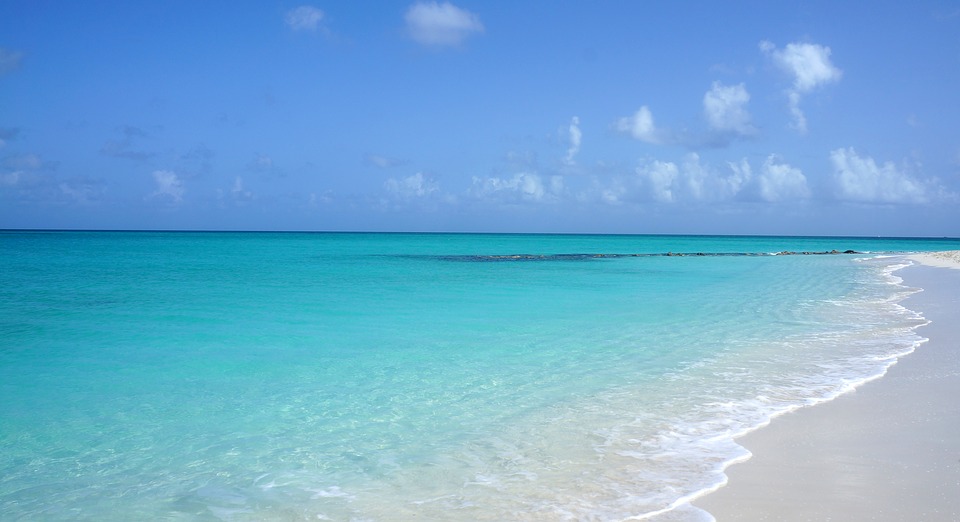One of life’s cruel ironies is that, for many people, when they have the time and freedom to travel, they don’t have the money for it.
With the cost of flights declining, cheap travel websites like The Flight Deal and The Points Guy making their way into the mainstream, and many Millennials focused on gaining experiences over material possessions, lower-budget travel is becoming more and more common.
Having traveled on very limited funds myself, I’ve compiled a list of 6 tips for travelers with a very limited budget.
1. BYOF (Bring Your Own Food — or make it while there)
This is going to be the most controversial of my tips, so I wanted to start with it.
To many travelers, the idea of bringing or cooking your own food while traveling abroad is heresy — after all, eating food in other countries one of the best parts about traveling, right?
Well, it depends on your reason for taking a trip. For example, when I was living on Guam, my funds were depleted due to a low-paying job and massive student debt. I was given a week off in advance of the Guam Bar exam (presumably to study), and I realized it was the same week as the Sapporo Snow Festival in Hokkaido, which is less than 5 hours direct from Guam.

Although I was able to find airfare for around $400 and a hostel to stay in, the Japanese Yen was strong compared to the U.S. Dollar and I was already stretching my budget with transportation and lodging.
So, I decided instead of going out to eat while in Sapporo, I would instead bring cereal bars with me and eat them for most meals.
Was it lavish? Definitely not. Did I miss out on experience some amazing Japanese food? I am positive that I did. But, in the end, I wasn’t there for the food, and to this day, attending the Sapporo Snow Festival remains one of my favorite travel experiences.
A healthier option for travelers is to only book accommodations with a kitchen, so that you can make your own meals. With Airbnb and similar services, you can usually find a place with a kitchen for less than a hotel and often the same price as a hostel (some of which also have kitchens).
2. Use foreign ATMs instead of currency exchanges
Except in rare circumstances, even when your bank charges you a fee for using foreign ATM’s, you will get a better exchange rate at the ATM than you ever will using a currency exchange, especially one located in an airport.

According to Smarter Traveler, ATM rates are between 2% to 7% better than rates charged at currency exchanges.
Try and budget out exactly how much you’ll spend in cash while abroad to avoid repeat trips to the ATM’s and higher fees. Also, whenever possible, use the credit card acquired in step 4 (assuming it has no foreign transaction fees, which is common among almost all airline credit cards).
3. Be okay with less than ideal housing
Just like with food, you have to remember that the reason you’re traveling is likely not to spend time in your hotel room. If you’re traveling on a budget, you should be open to staying at cheaper hostels and places that cater more to locals, which will help your money go further towards exploring the world.
The first time I went to Bali, I was living on Guam and was economically constrained. That said, using step 4 (below), I had miles saved up and found a first class, round-trip ticket to Bali for 30,000 miles. Work was ridiculously slow, so I asked my boss for a week off within 48 hours I was in my lie-flat bed on Thai Air heading to Indonesia.

I had no time to research the island, aside from asking friends who had visited and kindly drew me a map, and didn’t have a lot to spend on lodging. When I arrived in Ubud, I got off the bus and walked around for about a half hour, finding different places that offered lodging and and trying to negotiate a $20/night stay.
The first ~6 places either said no, or the rooms they offered were totally unappealing. But then I got to a place called the Dewi Sri Bungalows, and despite advertising rooms for much more, they accepted my rate for 3 nights.
I really lucked out here, because although there was no air-conditioning and no electricity, and it was my first time needing a mosquito net around my bed to sleep, this turned into one of my favorite hotel stays ever. I had my very own bungalow on a rice paddy, there were 3 free yoga classes every day by the pool, it was 2 stories with a kitchen and an outdoor bathroom (although both were a bit rusted and used!), and it was one of the most peaceful experiences I’ve had.
I could literally fill my blog with amazing trips that I’ve had where I stayed in less than ideal lodging — suffice it to say, if the only thing stopping you from traveling is you are afraid your accommodations will suck, it’s just a better excuse to leave and explore.
4. Get an airline or miles-earning credit card
Conventional wisdom is that if you don’t have a lot of money, you shouldn’t have a credit card. While I agree that you shouldn’t keep balances on your credit card (in other words, pay it off in full every month!), having an airline or similar credit card is great if you can qualify and are traveling with a limited budget.
Credit cards often come with a bonus to sign up — for instance, Delta and American Airlines recently offered 60,000 to sign up for a card, which is enough to get you round-trip to Europe from the U.S. The first year of fees is usually waived, and you can cancel these cards within a year of signing up (or pay the $95/year annual fee, which still can be worth it).

Instead of an airline credit card, you could also get a card like the Chase Sapphire Preferred, which not only comes with a similar sign-up bonus (which you can convert directly to United miles), but also earns you 2 points for every $1 spent at restaurants and has the same $95/year annual fee.
If you’ve obtained a card, focus on trying to put all your spending on it (while remembering to pay your balance off every month!). This will not only help you earn travel, but can save you money while abroad (see point 2).
5. Travel during shoulder season
Sure, Europe is great in the summer and there’s almost no better place to spend Christmas than Hawaii, but Europe is still pretty awesome in October and Hawaii is always amazing.

Shoulder season is basically a travel period between peak and off-peak seasons. Peak seasons (i.e., Christmas in Hawaii) are when travelers flock to certain destinations and off-peak seasons are times when, usually for weather-related reasons, places become more empty.
While traveling during off-peak season is the cheapest, you won’t always get the best experience because of inclement weather (think hurricanes in Central America and the Caribbean). So, a great compromise is to travel during shoulder season, when weather can sometimes still be amazing, and you are bound to find some great deals.
6. Stay in destinations where your money goes further
One of my favorite parts of cheap travel websites are that they find and promote some ridiculously amazing fares – I’ve seen flights priced under $400 round-trip from New York to Asia, and on decent airlines. I love these deals because they open up foreign and exotic travel to individuals who might otherwise never be able to go.

When picking places to travel, you should always consider how expensive a place will be and alter your plans accordingly. For instance, if you find an amazing deal to Frankfurt, Germany, you should consider hopping on a train and heading to Austria or Hungary. Heading to Cabo? Consider spending time in Todos Sontos or La Paz instead. Southeast Asia is almost always a good bet when it comes to having your dollar go further.
Have you traveled abroad with a limited budget? Share your tips below!








3 comments
Good tips… I tend to bring snack bars and make sure to have a fridge /kitchen area when traveling to save some money.